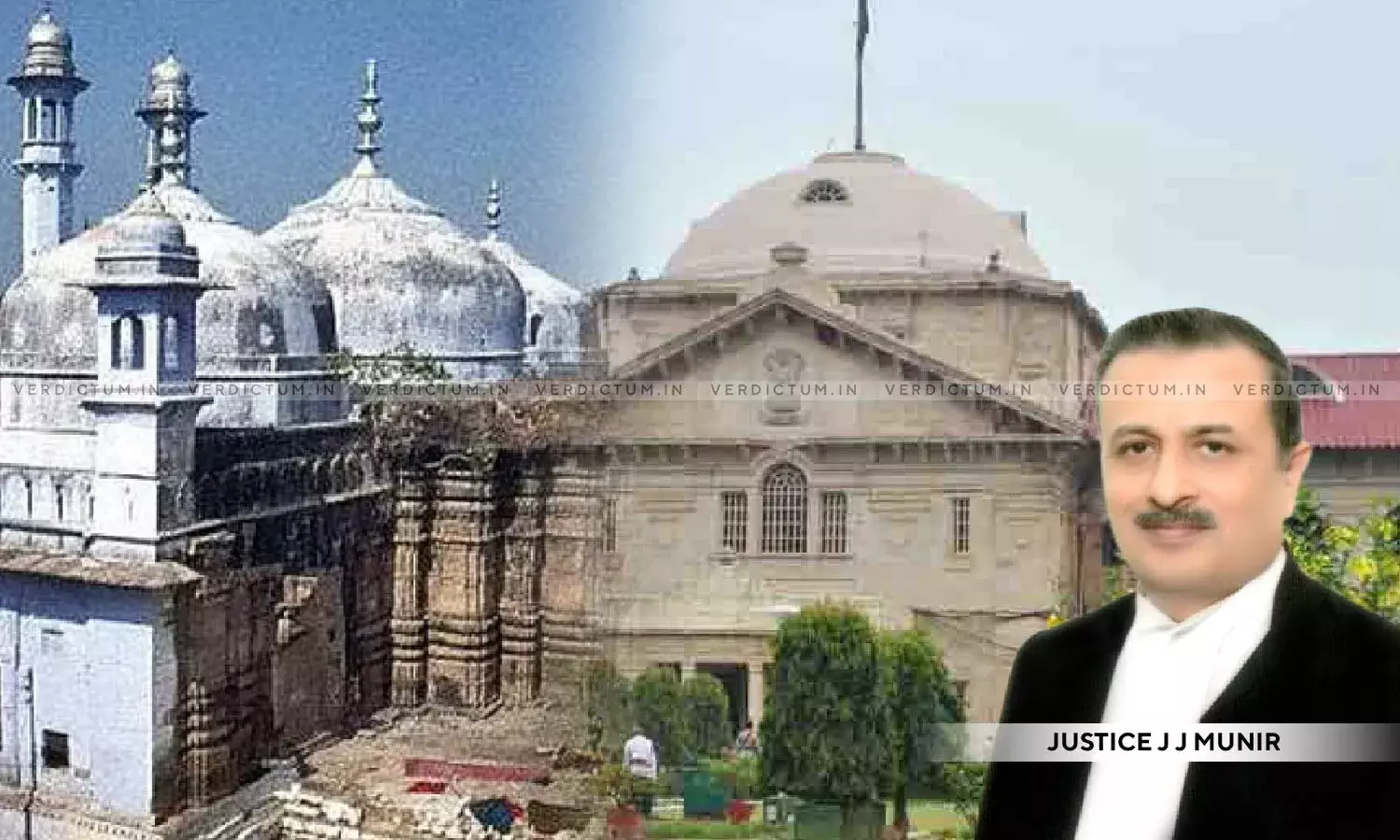Safe Evaluation Of ‘Shivling’: Allahabad HC Grants 8 Weeks To ASI To File Its Response
The Allahabad High Court on Thursday granted eight more weeks to the Archaeological Survey of India for filing its response to clarify whether the carbon dating of a structure, claimed to be a 'Shivling', in the Gyanvapi mosque complex could damage it or safe evaluation of its age can be done.
Justice J J Munir fixed March 20 as the next date of hearing after the counsel for ASI sought more time to file its response.
Counsel Prabhash Pandey and Puneet Sharma appeared on behalf of the Revisionists whereas Counsel Manoj Singh appeared for the Archaeological Survey of India.
The high court was hearing a civil revision petition filed by Laxmi Devi and three others challenging a Varanasi court order that had rejected the demand for carbon dating and scientific determination of the purported 'Shivling' found during a court-mandated survey of Gyanvapi mosque premises on May 16, 2022.
On November 21, the counsel for ASI had made an oral submission before the high court stating that the ASI is still contemplating with its experts as to what methods could be adopted to determine the age of the purported 'Shivling'.
In view of it, he had sought further time of three months to submit ASI DG's opinion as to whether a safe evaluation of the age of the purported 'Shivling' could be done by adopting a scientific methodology.
The petitioners have challenged a Varanasi court's October 14 order rejecting Hindu worshippers' plea for conducting a scientific probe of the 'Shivling'.
The high court had on November 4 sought the response of ASI in the matter and directed the ASI DG to submit his opinion whether investigation of the said structure, if examined through carbon dating, ground-penetrating radar (GPR), excavation and other methods adopted to determine its age, nature and other relevant information, is likely to damage it or a safe evaluation about its age can be done.
Cause Title- Laxmi Devi & 3 Ors v. State Of U.P
Click here to read/download Order
With PTI Inputs




